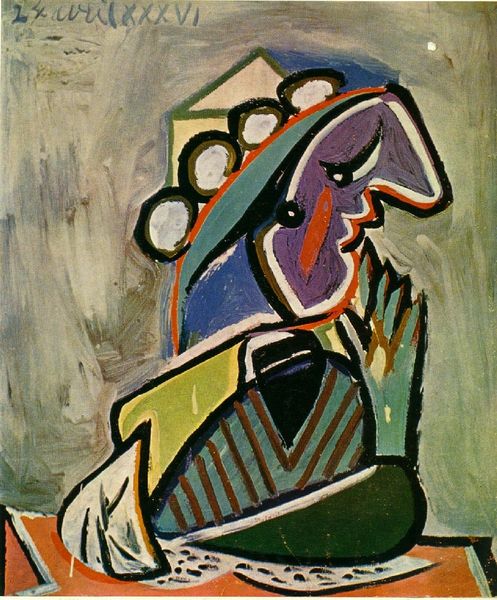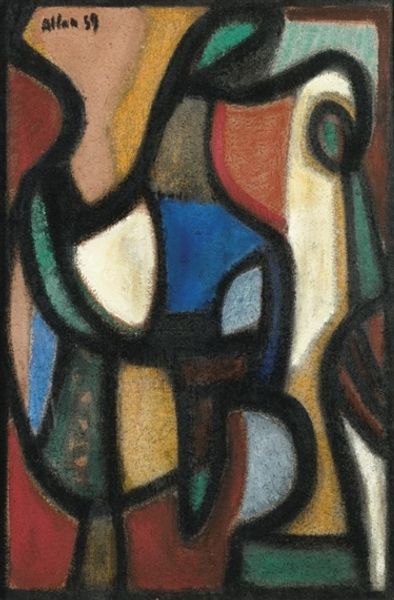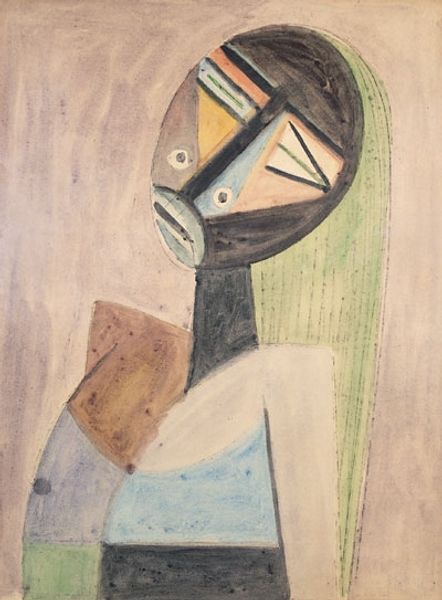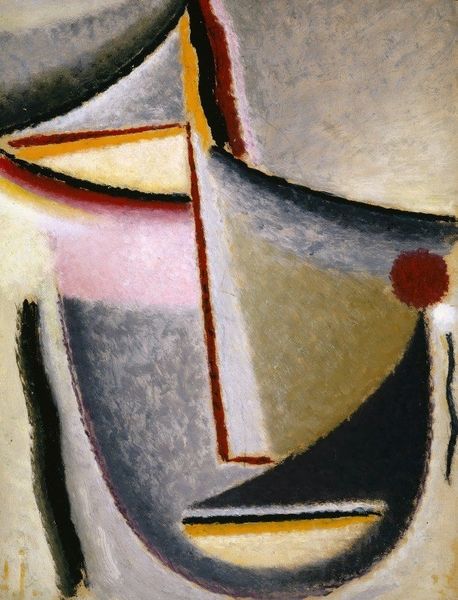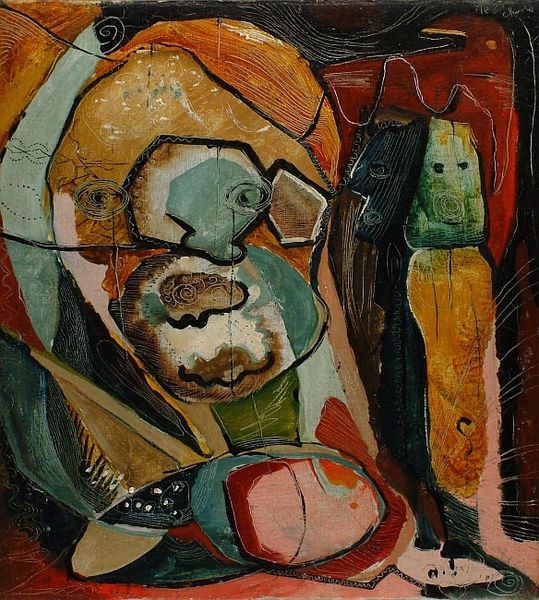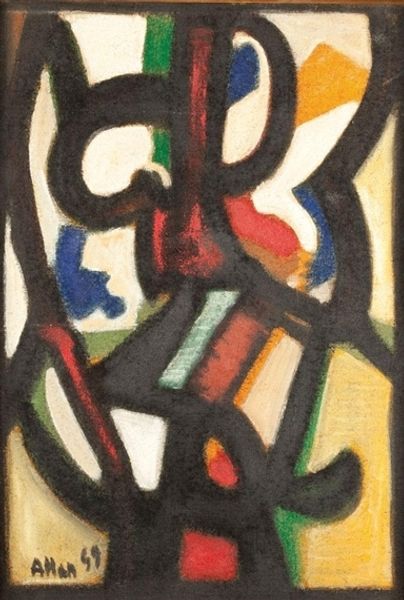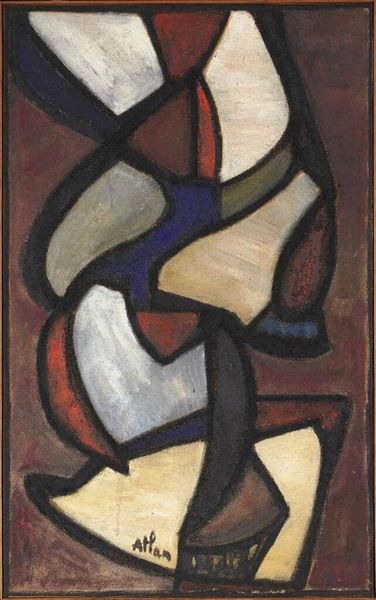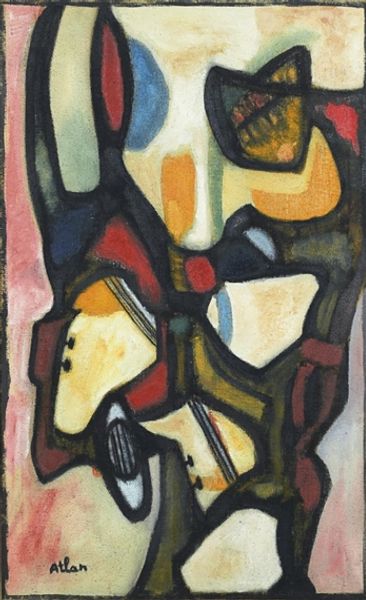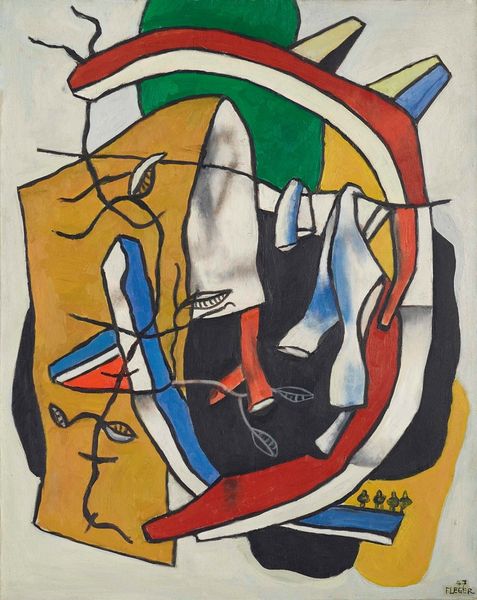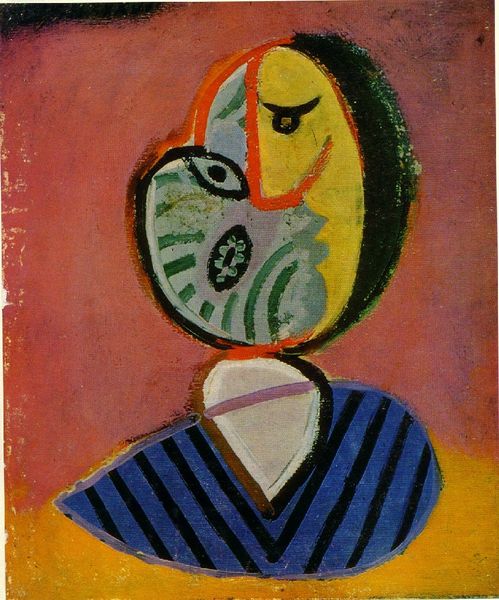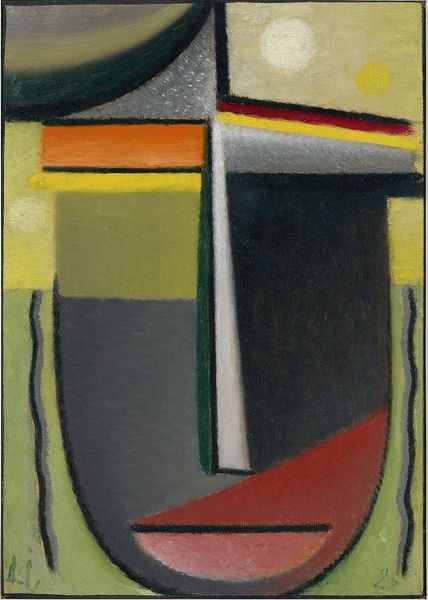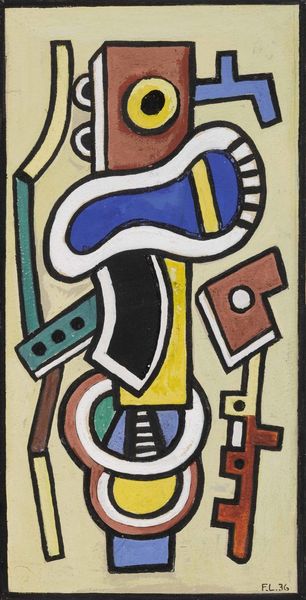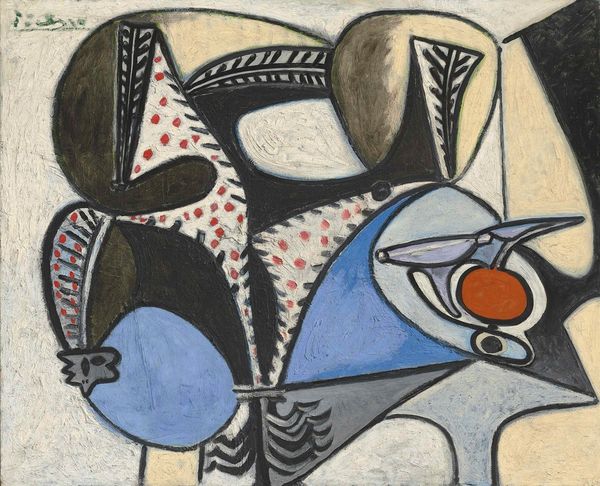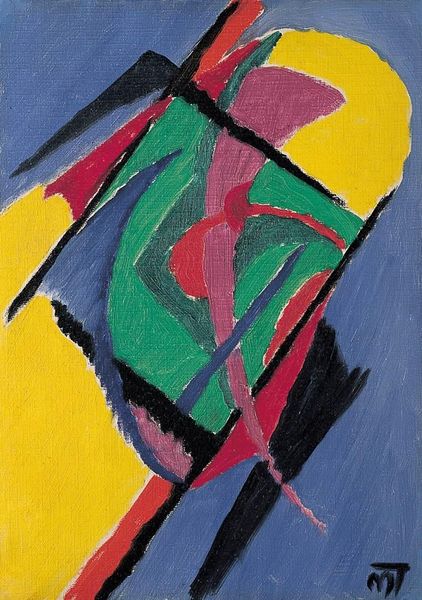
painting, oil-paint
#
portrait
#
cubism
#
painting
#
graffiti art
#
caricature
#
oil-paint
#
caricature
#
expressionism
#
abstraction
Copyright: Modern Artists: Artvee
Curator: Looking at this canvas, I see bold color blocking; blues, reds, yellows sectioned in heavy, black outlines. It's confrontational, even severe. Editor: I agree. We are looking at Pablo Picasso's "Tête", painted in 1929 using oil. This period for Picasso, witnessed the rise of authoritarian regimes in Europe. One could explore the fractured imagery, its almost aggressive deconstruction of the human form, as a response to that oppressive climate. Curator: Ah, situating the image politically, I like that approach! Does this then become a commentary on the fractured nature of identity and the violence of representation within authoritarian states? The painting definitely elicits questions of power and visibility. The heavy, almost crude outlining feels deliberately stark, as if refusing to be softened or made palatable. Editor: Absolutely. We should note how the institutional framework in which Picasso operated, particularly the patronage of wealthy collectors and galleries, perhaps influenced both the overt expression and the inherent limitations of any artistic resistance. How complicit was Picasso? Curator: That brings forward vital discussions on class. And consider the subject, is this one face, two profiles, how does that intersect with say, gender constructs of the time? Picasso and others were navigating shifting understandings of self and other within evolving power structures. How much did he lean into stereotypes and did his status affect those? Editor: Precisely! The dialogue the art creates and perpetuates, isn’t merely about deconstruction for deconstruction's sake, it's also bound to broader themes such as alienation, commodification and spectatorship within a rapidly changing societal landscape, especially that one. The color choices and harshness evoke similar things. Curator: For me it still resonates today when people encounter fragmented representation and are still denied full visibility. What are the institutions perpetuating those tropes? What actions can challenge this? It calls me into the ongoing discussions. Editor: Yes, I appreciate the continued social engagement we glean. In understanding this work, hopefully, we're motivated towards the important political struggles of then, and now.
Comments
No comments
Be the first to comment and join the conversation on the ultimate creative platform.
